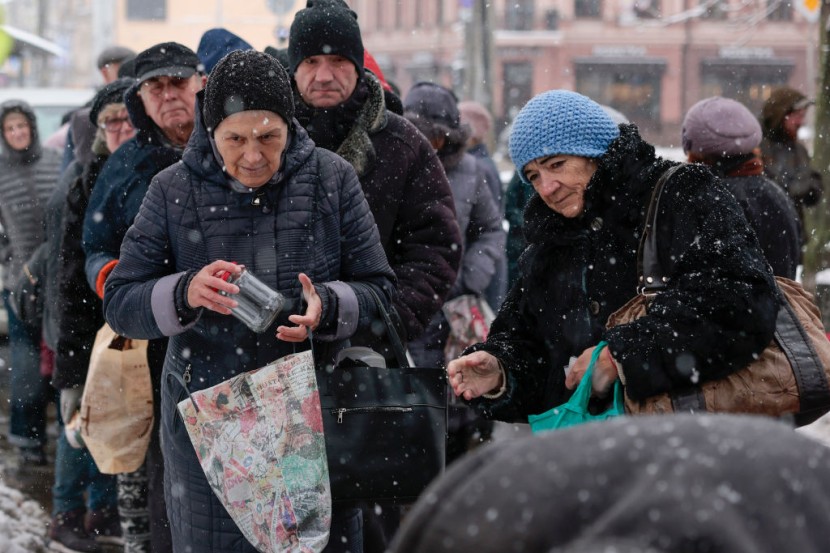
World Health Organization (WHO) officials warned that the approaching winter would put millions of lives in Ukraine at risk as the snowfall began across the country.
The European Regional Director of the World Health Organization, Dr. Hans Kluge, spoke at a press conference in Kyiv on Monday, calling the Russian airstrikes on Ukraine's energy and medical infrastructure "the largest attack on health care on European soil since the Second World War," as reported by Health Policy Watch.
Dr. Kluged warned that the key to making it through this winter in the Russia-Ukraine war is to focus on survival as 25% of the population in Ukraine (equivalent to 10 million people) are without electricity right now as the cold weather could be fatal.
"Put simply, this winter will be about survival," Dr. Kluge underscored.
Since the beginning of their invasion in February, Russian forces have launched 703 attacks against Ukrainian healthcare infrastructure. The Ukrainian Ministry of Health reports that as of November 16th, 144 healthcare facilities have been destroyed.
According to Dr. Kluge, this clearly violates both the laws of war and international humanitarian law. The health of the Ukrainian people and the functioning of their healthcare system must be protected at all costs from this ongoing war. Healthcare access is a human right and cannot be held ransom.
Dr. Kluge noted in a WHO statement: "Continued attacks on health and energy infrastructure mean hundreds of hospitals and healthcare facilities are no longer fully operational - lacking fuel, water, and electricity to meet basic needs."
Kluge urged that Russian forces immediately allow humanitarian corridors to be opened to the unoccupied areas. Many Ukrainians have been cut off from the over 9 thousand tons of medical supplies delivered by 35 countries since February because Russia has blocked the efforts of international organizations to deliver aid to the territories it controls in the Russia-Ukraine war.
Ukrainians Must Prepare for the Worst
In a Facebook post made late on Monday, Sergey Kovalenko, the CEO of the private energy supplier DTEK Yasno, stated that the company had received orders from Ukraine's state grid operator to resume emergency blackouts in the areas it serves, including the country's capital Kyiv and the eastern Dnipropetrovsk region.
Even though blackouts have decreased, Kovalenko warned that the majority of Ukrainians "will have to live with blackouts until at least the end of March," as per an AP News story.
He advised the public to prepare for the worst and "stock up" on warm clothes, blankets," and other things that could help them withstand a "long shutdown" as the Russia Ukraine war continues.
Russia Weaponizes the Winter Season
As the Russia-Ukraine war nears the nine-month mark, Russia has been pounding Ukraine's infrastructure, including its power grid, from the air for weeks. Since the attack, millions of Ukrainians have been without access to necessities like power, heat, and water.
In the depths of winter, it is not unusual for Ukraine to experience sustained temperatures below freezing. Local authorities in southern Ukraine's Kherson and Mykolaiv regions have begun evacuating residents in anticipation of a harsh winter.
The energy minister of Ukraine, German Galushchenko, said back in June that Russia planned to use the upcoming heating season as a cover for attacks on energy resources and facilities, according to NPR.
Galushchenko claims that many of Russia's earliest attacks targeted power plants made of thermal coal and gas.
Meanwhile, Russia has maintained its occupation of the southern Ukrainian nuclear power plant, the largest in Europe. The nuclear power industry provides roughly 60% of Ukraine's energy needs.
Related Article : China Imposes Harsh Restrictions Amid Spike in COVID-19 Cases. Its Biggest Outbreak Since April








